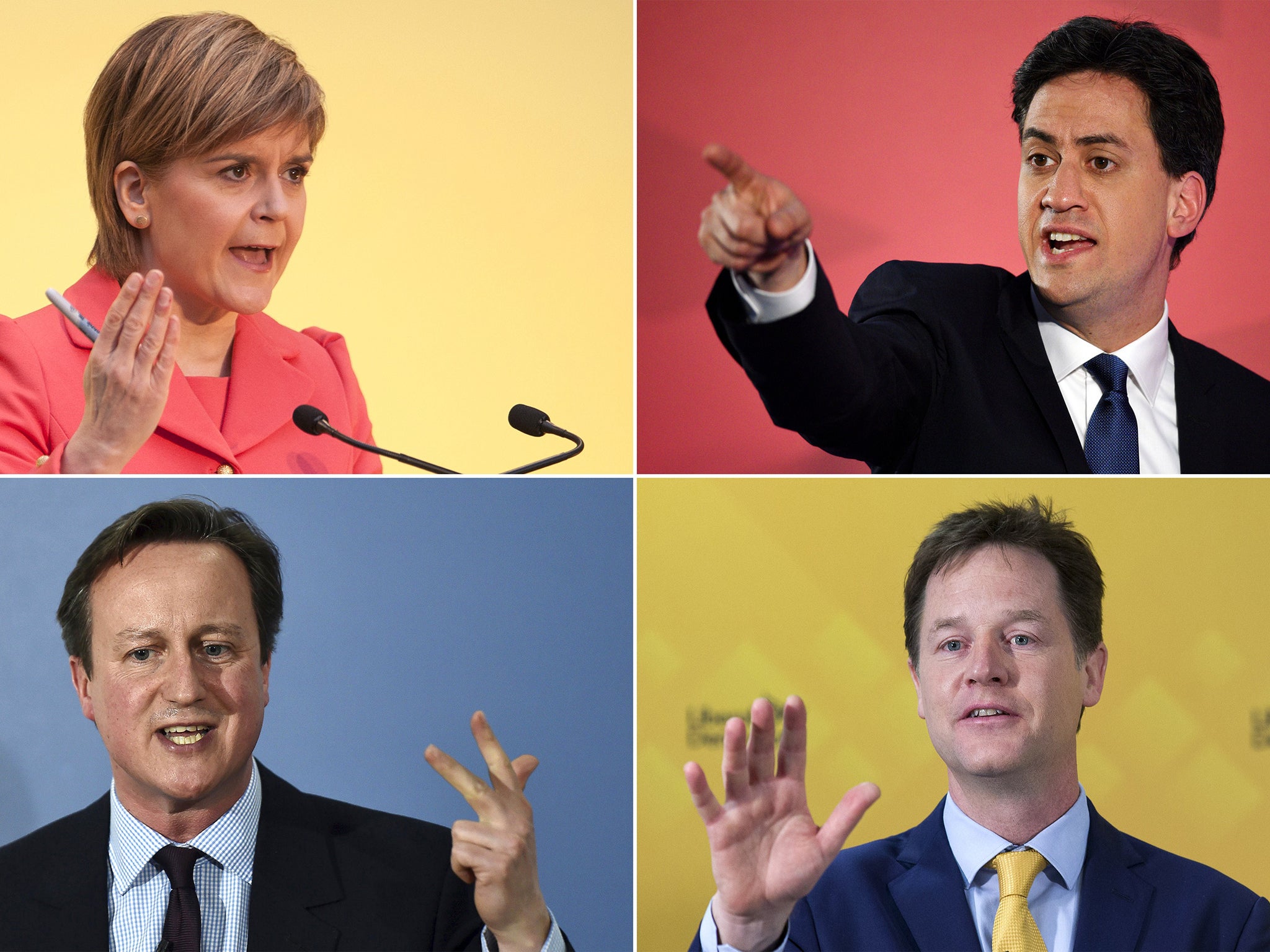UK general election: A guide for Americans
A guide to the British election for uninitiated Americans

Your support helps us to tell the story
From reproductive rights to climate change to Big Tech, The Independent is on the ground when the story is developing. Whether it's investigating the financials of Elon Musk's pro-Trump PAC or producing our latest documentary, 'The A Word', which shines a light on the American women fighting for reproductive rights, we know how important it is to parse out the facts from the messaging.
At such a critical moment in US history, we need reporters on the ground. Your donation allows us to keep sending journalists to speak to both sides of the story.
The Independent is trusted by Americans across the entire political spectrum. And unlike many other quality news outlets, we choose not to lock Americans out of our reporting and analysis with paywalls. We believe quality journalism should be available to everyone, paid for by those who can afford it.
Your support makes all the difference.While the pool of presidential candidates in the US is beefing up for an election that’s 18 months away, people in the United Kingdom will hit the polls on Thursday for the first general election in five years and will elect a new government.
It is expected to be the closest election in British history and pits Tory incumbent David Cameron against Labour challenger Ed Miliband. But the Green Party, Ukip, the Liberal Democrats, the Scottish National Party and Plaid Cymru, among others, all have political ambitions.
What’s that, you say? You didn’t understand a word of that?
OK, don’t fret. We’ll take it slow. Below is a comprehensive guide to the British general election:
When is it?
Polls will open on Thursday (7 May) at 7 am and will close at 10 pm.
How does it work?
Brits will go out to polling stations in their respective parliamentary districts to vote for a minister of Parliament (MP) to represent that district in the House of Commons, the lower of the two houses of Parliament. If one party obtains a majority – 326 seats of the 650 seats in the House of Commons – that party is entitled to form a government.
Voters do not vote for the prime minister. That decision is made by members of Parliament. However, voters often choose an MP from the party of the leader they prefer.
So, by 8 May the new British government will be clear?
That is far from certain. Many pundits are expecting a hung parliament, which happens when no party gets the majority of seats in the House of Commons. In the event of a hung parliament, the government can be formed by either a minority government or a coalition government, such as the one formed in 2010 when the Conservative Party (also known as the Tories) was joined by the Liberal Democrats.
If a hung parliament occurs, politicians can negotiate to form a coalition until 28 May, at which time Queen Elizabeth II will deliver a speech about the new government’s priorities.
What in the world is Plaid Cymru?
Plaid Cymru is Welsh for the Party of Wales and is one of the smaller parties vying for power, along with the United Kingdom Independence Party (Ukip), the Green Party and the Scottish National Party
Scores of other minor parties exist and some potentially could get seats in Parliament, including – this is real – the Monster Raving Loony Party.
How many parties have seats in the outgoing Parliament?
Twelve: Conservative (302 seats), Labour (256), Liberal Democrat (56), Democratic Unionist Party (8), Scottish National (6), Sinn Fein (5), Plaid Cymru (3), Social Democrat and Labour (3), Ukip (2), Green (1), Alliance (1), and Respect (1).
There are 650 parliamentary districts?
Yes and they are spread throughout the UK. England has 533 districts, Scotland has 59, Wales has 40 and Northern Ireland has 18. Each district contains roughly 60,000 people.
OK, I think I get it now. So, who is going to win?
It is too close to call. Polling company TNS has the Conservatives leading by a hair, with 33 per cent, followed by Labour with 32 per cent. But because of the margin of error, they are essentially neck-and-neck. Ukip garnered 14 per cent, while the Lib Dems are on 8 per cent.
Follow @PaytonGuion on Twitter.
Join our commenting forum
Join thought-provoking conversations, follow other Independent readers and see their replies
Comments